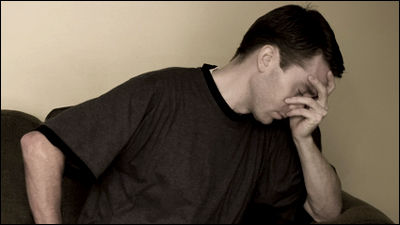'11 Universal Laws' derived from science and laws useful in all fields

by on
It is important to deepen or master one thing, but since there are universal laws that are universally applicable in many fields in the world, it is blinded to see things that are limited to one subject There is also a risk. As there are many things that are standardized in the fields of science and law in other fields, Morgan Housel, who received two awards from the New York Times and SABEW as an editor, said “11 universal The law is mentioned.
Universal Laws of the World · Collaborative Fund
https://www.collaborativefund.com/blog/laws/
◆ 1: Little Wood's Law

by
The mathematician John Edenser Littlewood defined the miracle as 'an exceptional event that occurs only once in a million.' And assuming that 'an event happens once a second while a person is awake' and 'a person acts 8 hours a day', 1 million events will occur in 35 days. In other words, according to the definition of miracles, Littlewood claims that people will experience miracles once every 35 days on average. From here, it can be said that 'miracles are commonplace in reality.'
With the development of social media and spotlights on people's lives and events, it can be said that miracles are being created at a pace faster than Littlewood's law.
◆ 2: Gibson's law
Gibson's law that 'experts sometimes show two opposite views in law and public policy' applies to other fields.
There are several possible reasons why Gibson's law is found, and one may look different in the same context but in different contexts. In addition, even if the expert emphasizes the ease of understanding for the viewer and speaks one of the multiple aspects, it has the impression that 'it is saying the opposite of that time'. It is apt. In addition, when the beliefs and views of life exceed the findings obtained from the data and training, or when it is necessary to say “what you need for your career,” not “what you think of yourself”, etc. I think it is different.
Most of people's remarks are cut out of ideas, and it seems that it is common in everyday life to look inconsistent from the outside.
◆ 3: Brandlini's Law

by
Italian software developer Alberto Blandlini has become a big topic, saying 'the amount of energy needed to refute the borage is an order of magnitude larger than producing borage' and later ' Brandini's Law ' It came to be called.
In the field of law, it is important to prove, and it is impossible to make an assertion based on 'nothing happened,' but the opposite happens outside the court. In other words, commentators are allowed to express their opinions freely, but critics must counter this with proof. This is one of the things that Brandlini's law exists.
In addition, there are media that hide prejudice and incentives and make them appear intelligent in the world, but when viewers believe that they are 'good' and accept the media, it becomes difficult to persuade them as 'wrong' . This is also one of Brandlini's laws.
◆ 4: The law of good heart
Goodhart's law is derived from Charles Goodhart of the Bank of England, which means that when the measurement results reach the goal, the measurement results themselves become useless.
Goodhart's law is represented by the Cobra effect that occurred in India under British rule. The British government was concerned about Cobra damage in Delhi and tried to provide compensation for dead Cobra. Then, the government stopped the program because people started breeding and killing the cobra for the purpose of compensation. The event that the wild cobra proliferated further because people left the unnecessary cobra outside is the origin of the 'cobra effect'.
The same is true for modern companies, but if you set goals for your employees, they will try to optimize the goals by ignoring important things in the system. The same is true for investors to ask the CEO to set goals. As a result, General Electric has chosen to sell to investment funds to reputable financial partners, not end users, and to endanger the company while achieving sales targets.
Goodhart's law is also said to be close to the observer effect in physics.
◆ 5: Doro's irreversible rule

by
The paleontologist Louis Dro claimed that 'the organism does not return exactly to its previous state, even if it is in the same conditions as it existed before.' It is Dolo's idea that the animals that lost the tails are too complicated to lose their tails, so they can not reproduce the same path and hence the chance of getting the tails again is almost zero. .
Although Doro's irreversible rule is in the business world, you need to target the right users who want a specific thing and create things in the right way, at the right time to get customers. It's all a concurrency, and it's hard for brands that once lost their customers to regain their customers.
The team's success is often spotlighted by a single person, but in practice it can be achieved through engagement with other staff. Team success is team driven, and placing individual staff elsewhere does not mean that success is replicated.
◆ 6: Parkinson's Law
'The number of officials continues to increase regardless of the amount of work,' Cyllyl Northcourt Parkinson claims. Older women who spend their free time, 'work for writing postcards', 'one hour for finding postcards', 'one hour for finding glasses', '30 minutes for searching addresses', 'one hour for composition You can do a day's work with tasks such as 15 minutes, '15 minutes to look for bulk when going out'. Without knowing that resources are more than needs, employees will find a lot of work, whether or not they should.
The same thing can be said for smartphones that 'the storage is full with unnecessary photos and more space is needed.'
◆ 7: Weo's Law
by Icons8 team
Finland's economist Osmo Antero Wieo preached that 'communication usually fails, except when it works by accident.' Weo's view is roughly as follows.
・ When the message can be understood in multiple ways, one understands it in the most harmful way
・ The more you communicate, the more difficult it is to succeed in communication
・ In the case of the mass media, what matters more is “how does it look” than facts?
The above items are described in the era of handwriting, and the persuasiveness is even greater in the modern day of technology development.
◆ 8: Thayer's law
Named after Wallace Stanley Sayer, a professor of political science at Columbia University, 'The Law of Sayer' is 'The strength of emotion and the amount of bet are inversely proportional to each other in any battle.' From this, Sayer pointed out that political debate in the academic world would be very intense. Also, in the world of investment, the less money you have as an asset, the more you will argue about investment.
◆ 9: Stigler's law

by
The statistician Steven Stigler advocated the rule that 'scientific discoveries do not have the name of the first finder'. There are two main causes for this.
One is that discoveries rarely occur alone. This is because many discoveries are derived by combining multiple discoveries that have been created so far. Bill Gates says, 'Steve Jobs and I have been praised more than it should be, otherwise the story would be too complicated,' and even if it is the result of more than one person It shows that it is easy to be in the limelight.
Also, it is true that people who are good at conveying ideas are easy to be entertained, not people who are good at producing ideas. This is also evident from the fact that simple psychology books are more likely to be best sellers than difficult scientific books that have written great discoveries. The explosive content is mostly due to good luck and proper promotion at the right time.
◆ 10: Mill's mistake
An 18th-19th-century historian, philosopher and economist, James Mill considered the constitutional monarchy to be the form that the government should be. However, theoretical biologist Stuart Kaufmann points out that Mill led inferences from the 'most sure thing' of his time, stating the dangers of 'infering optimality from familiar ones'. Yes. Kauffman calls such an event 'Milling mistake'.
Kaufmann said that 'it is necessary to be skeptical when you consider things you are familiar with to be optimal,' it is necessary to consider the possibility of having overlooked the evidence to criticize your judgment. .
◆ 11: Hickam's Maxim

by rawpixel.com
Occam's razor , which says 'do not assume more than necessary to explain a certain thing,' has the fewest assumptions in medical care if there are multiple causes for the patient's condition. It should be used as a guideline that you should choose the cause.
However, doctor John Hickam pointed out the limits of Occam's razor. From a statistical point of view, it seems that there are more cases of multiple causes than those caused by one extremely rare disease.
Related Posts:
in Note, Posted by darkhorse_log







